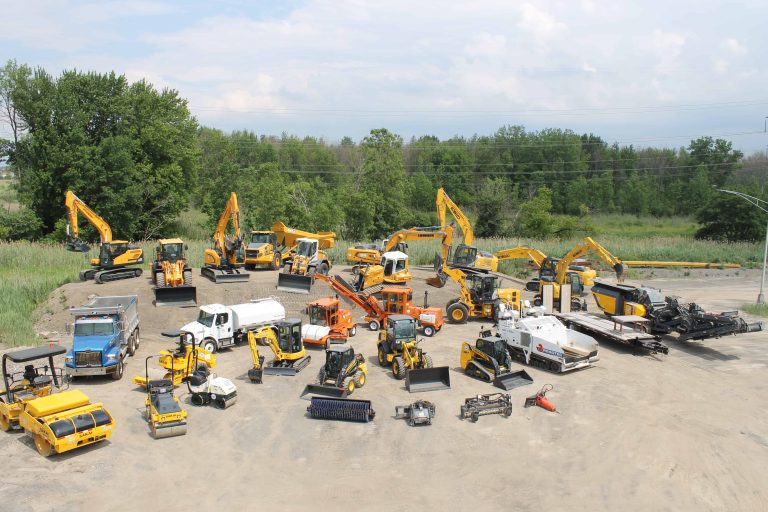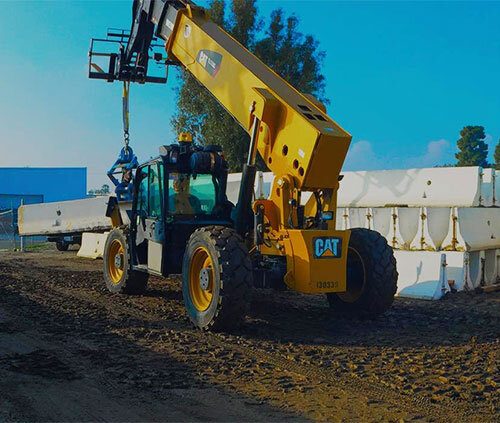Boom Lift Rental: Inexpensive and Reputable Lifts for Any Type Of Task
Boom Lift Rental: Inexpensive and Reputable Lifts for Any Type Of Task
Blog Article
Maximize Your Spending Plan by Understanding the Costs Connected With Construction Devices Leasings
Understanding the complete extent of costs linked with building and construction devices rentals is important for maximizing your spending plan. While the preliminary rental cost might seem straightforward, countless extra expenses-- such as transport, fuel additional charges, and maintenance-- can promptly collect, affecting your financial preparation. Additionally, knowing numerous charges and the ins and outs of rental contracts can aid prevent unexpected monetary worries. What methods can be utilized to efficiently manage these expenses and make certain a more effective rental experience?
Introduction of Rental Prices
When thinking about construction tools leasings, recognizing the linked expenses is paramount for reliable budgeting and project preparation. Rental costs can differ dramatically based on numerous elements, consisting of equipment type, period of leasing, and area. The initial rental charge frequently shows the devices's market demand and its connected functional capabilities, affecting the total cost.
In addition to the base rental price, secondary costs might emerge, such as transport fees, fuel additional charges, and maintenance fees. It is important to make up these extra expenses to precisely examine the complete cost of renting out equipment. Moreover, the rental duration can influence pricing; longer rentals might get reduced prices, while temporary services could incur greater day-to-day charges.

Malfunction of Rental Prices
A detailed understanding of rental rates is vital for specialists and job supervisors aiming to optimize their budgets. Rental prices for building and construction devices normally include a number of elements, including base prices, time-based fees, and usage charges.
Base rates are the core costs linked with the leasing of the devices, frequently identified by the type and dimension of the machinery. These rates can differ dramatically, affected by aspects such as equipment need, accessibility, and regional market trends. Time-based fees, which might be daily, weekly, or monthly, offer to accommodate various job timelines and rental periods.
Additionally, rental prices may consist of usage fees, which apply when tools is made use of beyond a defined threshold, ensuring that the rental firm can account for wear and tear. Seasonal need fluctuations can additionally impact rental prices, with peak building periods commonly commanding greater prices.
Additionally, understanding the rental business's policies pertaining to upkeep and insurance coverage can provide more insight into the total cost framework. By assessing these parts, specialists can make enlightened decisions, making sure the selection of rental devices aligns with both task requirements and spending plan restrictions.
Added Costs to Think About
Recognizing the intricacies of extra costs go to these guys is vital for specialists to handle their total service expenditures effectively. Beyond the basic rental rates, various supplemental costs can significantly impact the total cost of tools service. These charges typically include shipment and pickup charges, which can differ based upon range and logistics associated with transferring the equipment to and from the work website.
In addition, some rental companies may impose gas additional charges if the devices is returned with less fuel than when rented. It is also important to recognize potential cleansing charges, especially for customized devices that requires comprehensive upkeep after usage.

Thoroughly assessing the rental contract and clarifying these additional fees upfront can assist professionals make certain and prevent unanticipated expenses that budgets stay undamaged throughout the project lifecycle.
Upkeep and Repair Work Expenditures
Routine upkeep and repair work expenses are frequently forgotten elements that can dramatically influence the general price of construction tools rentals. When leasing tools, it is important to take into consideration not only the rental fees yet also the prospective expenses related to maintaining the machinery in optimum operating condition.
Lots of rental firms include fundamental upkeep as component of the rental agreement; nevertheless, extra comprehensive repair services or unanticipated break downs can lead to additional costs. It's vital to assess the rental contract carefully to comprehend what maintenance services are covered and what obligations drop on the renter.
Furthermore, equipment that is not properly maintained can cause ineffectiveness on the job site, potentially increasing and causing delays project costs. To reduce these risks, it is recommended to perform regular evaluations and maintain open communication with the rental service provider concerning any issues that arise during usage.
Insurance Policy and Responsibility Expenses
Insurance coverage and responsibility prices are essential parts that can substantially affect the overall expenditure of building tools services (construction equipment rentals). These costs make certain that both the rental business and the customer are protected from possible monetary losses arising from crashes, damage, or burglary during the rental period

Furthermore, clients must recognize any kind of deductibles or exclusions in the insurance coverage policy, as these can influence potential out-of-pocket costs. Recognizing the terms of any insurance protection is essential visit site to prevent unanticipated expenses. Inevitably, budgeting for insurance and obligation expenses can assist make certain a smoother rental experience and safeguard versus financial risks connected with building tasks.
Conclusion
In conclusion, a comprehensive understanding of the costs linked with building and construction equipment services is essential for efficient budget plan monitoring. Inevitably, informed decision-making regarding equipment leasings adds to the total success of building endeavors.
Rental costs can vary significantly based on numerous variables, including tools kind, duration of rental, and area (dozer rental). The rental period can influence prices; longer leasings might certify for discounted prices, while short-term services may incur greater daily costs
By carrying out comprehensive study and engaging with trusted rental business, professionals can properly navigate the complexities of rental rates, eventually maximizing their monetary sources.
Beyond the standard rental prices, numerous extra fees can dramatically affect the complete cost of devices service. Rental companies usually supply responsibility insurance coverage that covers injuries to 3rd events or damage to property, while tools damage insurance policy can cover the cost of repair work or substitute if the rented equipment is harmed.
Report this page